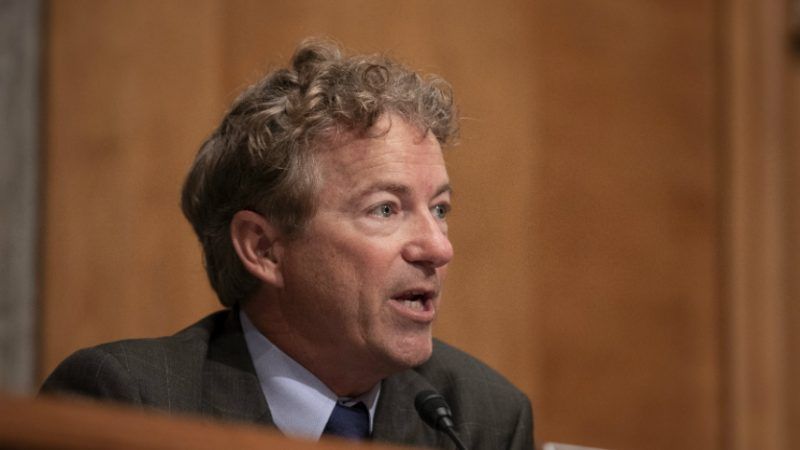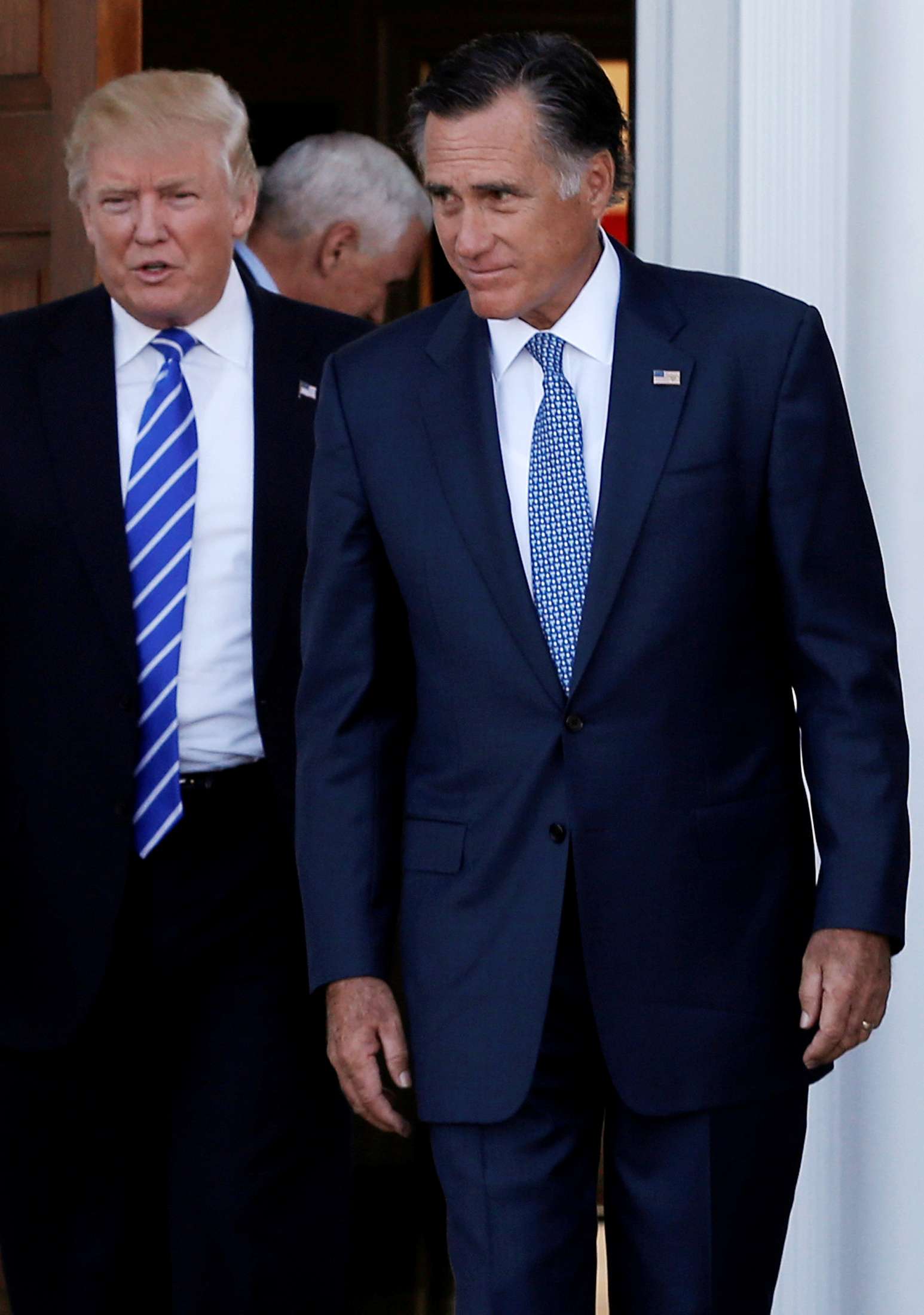Rand Paul Downplays His Influence on President Trump
When it comes to foreign policy and criminal justice reform, Paul claims that "it's not so much me pushing [Trump] in one direction as that we see eye-to-eye."

In a phone press conference today dedicated to decrying new Utah Sen. Mitt Romney's op-ed attacking President Donald Trump's character, Sen. Rand Paul (R–Ky.) also downplayed reports that he, Paul, was a prime influence on some of Trump's policies.

"I look at it slightly differently," Paul said. "It's not so much me influencing him as that I tend to agree with his policies." When it comes to Paul's credited influence on Trump's stated desire to unwind aspects of American military involvement overseas, the senator said, Trump "expressed himself the same way throughout his campaign."
Paul also refused to identify himself as a prime influence when it comes to criminal justice reform, arguing that both presidential advisor/son-in-law Jared Kushner and Trump himself believe that "people have been unfairly in prison for decade after decade, many of them minorities, and we need to have a better way," again declaring that "it's not so much me pushing [Trump] in one direction as that we see eye-to-eye" on those policies.
As for Romney, Paul argues that for senators in the president's own party to attack Trump's character is "not useful" and can harm "any ability to work together in the Senate to get things done." While stating that he, Paul, according to his voting record has "opposed the president more than any other Republican in the Senate" (and singling out tariffs as a prime area of disagreement with Trump), he believes other senators should emulate him in treating Trump "with dignity and with respect."
When a questioner confronted him with Trump's tendency to insult and name-call, Paul said that while he doesn't want to say "I give the president a pass" on such behavior, he thinks it is "more important to look at what we have in common, policy-wise, legislation-wise, what we can get accomplished" and that it doesn't "serve any purpose other than gratifying oneself to criticize the president's character."
Paul says politics should be the art of looking for agreement, and that—unlike differences on policy, where common ground can be found on other issues and opinions can shift—"disagreement on character is not fixable" and "if you say someone has terrible character, you can't say next week their character has changed."
Paul said he doesn't think many other senators agree with Romney's critiques of Trump, which Paul wrote off as unproductive "virtue signaling." Paul stressed how much the president campaigned for and helped other Republican senators, and compared the Never-Trump movement that he sees Romney as identifying himself with to the hawkish neocons who also attacked Ronald Reagan for negotiating with Soviet leader Mikhail Gorbachev.
Paul suggests it would be more productive for Republicans in the legislature to focus on the parts of Trump's policies he sees as positive, such as tax cuts, criminal justice reform, regulatory reform, and Supreme Court justices who are "libertarian-leaning and conservative."
Asked about the possibility that Romney intends to run against Trump in 2020, Paul pointed out that Trump was able to win some states, such as Michigan and Pennsylvania, that Romney was not. (Romney did, however, get a larger percentage of the national popular vote in 2012, at 47.2 percent, than Trump did in 2016, with 46.1 percent.) Paul wrote off Romney in general as standing for a sort of "establishment big government Republicanism" that is "not popular enough to win a general election."


Show Comments (28)